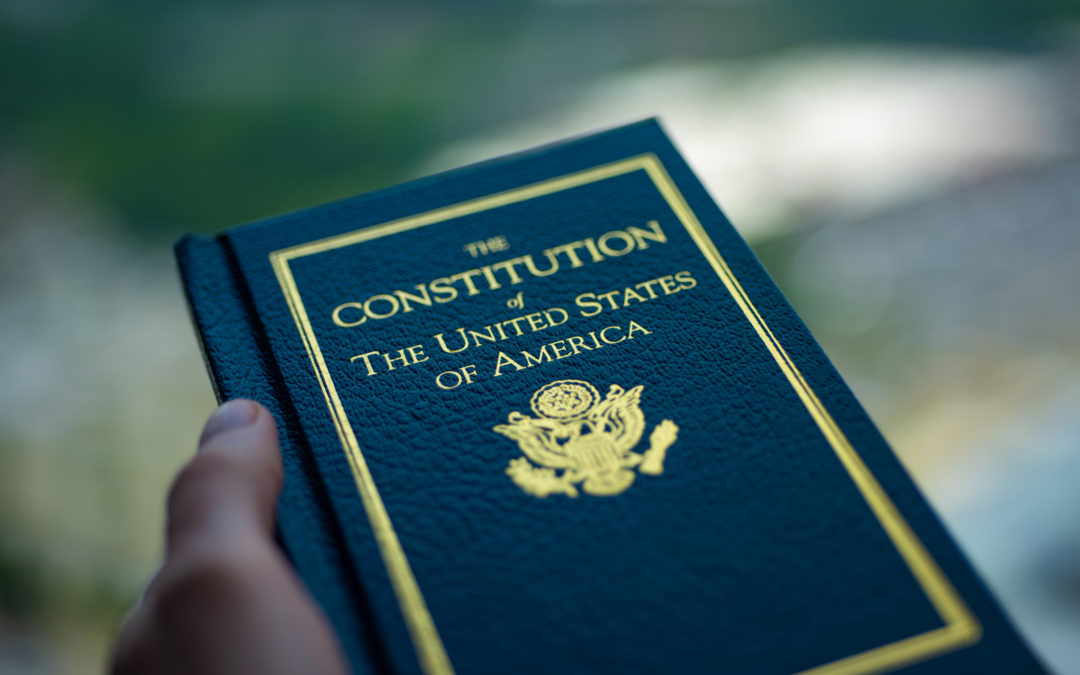Iowa’s congressional delegation of four representatives and two senators voted unanimously against every challenge to the electoral votes that were counted on January 6th, 2021. Given the strong support that Republican members showed for President Trump during the election campaign and their opposition to impeachment, many Iowans are surprised that they did not support the challenges put forward by Senators Cruz and Hawley and a number of representatives from other states.
Iowa Republicans take their constitutional duties seriously and are particularly sensitive to attacks on the Electoral College, which they believe allows smaller states the representation they need to preserve a level of independence from the federal government. The great triumph of our Constitution is the deliberate and intricate balance of power it created between the states and the federal government, as well as between the three branches of the federal government. That balance prevents tyranny by ensuring that no individual or oligarchy can easily take control of the country.
While Article 1, Section 4 of the Constitution gives Congress power to regulate congressional elections in order to preserve congressional authority, Article 2, Section 1, and the 12th Amendment do not give Congress similar authority over the selection of presidential electors, except for the time of their selection. These sections were designed to preserve the independence of states and the executive branch of the federal government.
Article 2, Section 1 is clear that the legislatures of states may select electors in any manner they choose. The 12th Amendment specifies that electors are to vote for President, and states are to certify the results of that vote and transmit them to the President of the Senate, a position held by the Vice President. The Vice President is then directed to “open all the certificates, and the votes shall then be counted; — The person having the greatest number of votes for President, shall be the President.” There is no provision for challenges and no authority given to the Vice President or Congress to do anything other than count the results that have been certified by states. Counting is not just a ceremonial task, since judgment would need to be exercised in the event of broken seals, duplicate votes, or obviously fraudulent certification, but counting does not appear to give Congress the authority to second-guess a state’s certification process.
If this is the case, then why did Congress go through the process that unfolded so chaotically on January 6th? The answer is the Electoral Count Act of 1887 that was passed after the challenged election of 1876 when some states transmitted multiple election results to Congress that were claimed to be duly certified. Deals were made, and a second civil war was averted, and the Electoral Count Act was eventually passed to prevent future confusion. The act was helpful in specifying exactly what certification means, but it also seems to have given powers to Congress that are not found in the text of the Constitution. If the law grants Congress the power to refuse to count certified electoral votes, then in a hyper-partisan environment, whichever party controlled Congress would always win presidential elections, and states would lose their constitutional power to control how their electors are chosen. The Electoral College would be redundant. The constitutionality of the act has never been tested in court.
Iowa’s congressional delegation chose the constitutional route of counting electoral votes that had been certified by states. In all fifty states, there was only one set of electoral votes that were certified by either a governor, secretary of state, or legislature. A reasonable interpretation of the Constitution holds that these votes had to be counted and that Congress had no authority to refuse to count any of the votes.
Other members of Congress with different interpretations of the Constitution and the law voted to challenge electoral votes from several states. Accusations of treason and sedition for voting this way are just as ridiculous as they would have been against Democrats such as Maxine Waters and Barbara Boxer who voted to challenge electoral votes received by Donald Trump in 2016 and George W. Bush in 2004. Questions of constitutional interpretation are difficult, which is why we have a judicial branch of government to resolve them when necessary. In this case, judicial intervention was not necessary, since the electoral vote challenges failed to obtain majorities, and Congress went on to award Joe Biden the presidency. People of good faith can reach different conclusions, and they should be allowed to reach those conclusions regardless of distractions such as the capitol break-in, questions about election integrity, or wild accusations in the press and social media.
Iowa’s Republican congressional delegation has taken principled and logically consistent stands for election integrity, support for President Trump, opposition to impeachment, and for the counting of certified electoral votes for president. Iowans are, of course, free to disagree with their votes, but it is irresponsible for anyone to claim that these votes show disloyalty to our country, the Constitution, our party, or the principles of democratic and republican government.
David Barker is a member of the State Central Committee of the Iowa Republican Party



